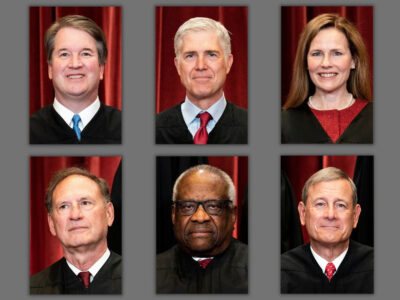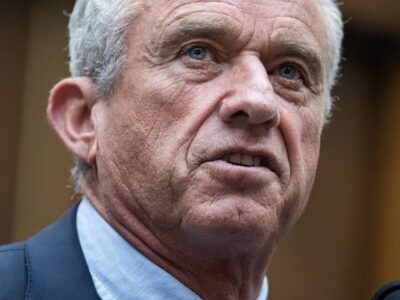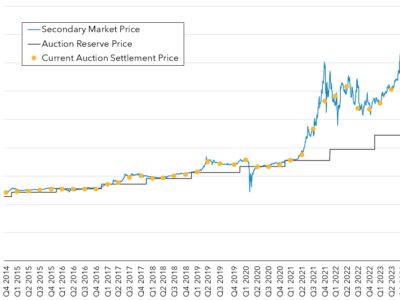Major Settlement Announced in Volkswagen Emissions Fraud Litigation
$14.7 Billion Civil Enforcement Settlement is a Victory for Consumers, Environmental Prosecutors
Federal and state environmental prosecutors today announced a proposed settlement of government civil enforcement litigation they’ve pursued against Volkswagen in response to the automaker’s acknowledged efforts to cheat federal and state auto emission standards and defraud consumers. The complex settlement, lodged with the assigned U.S. district court judge in San Francisco, requires Volkswagen to pay government regulators and consumers approximately $14.7 billion.
With the exception of the government’s earlier settlement of its legal claims arising out of the 2010 Deepwater Horizon oil spill disaster, this represents the biggest environmental enforcement settlement in American history.
By now, the events giving rise to today’s comprehensive settlement are well known: in September 2015, the story first broke that Volkswagen had installed so-called “defeat devices” in nearly a half million diesel-powered vehicles the automaker sold or leased to U.S. consumers during model years 2009-2014. Those devices allowed Volkswagen to pass government-mandated emissions tests in the laboratory, but which deactivated the VW vehicles emission control systems on the open road and caused the affected vehicles to emit up to 40 times the allowable levels of nitrogen oxide (NOx) emissions. To add insult to injury, Volkswagen had marketed the doctored diesel vehicles to unsuspecting consumers as being environmentally-friendly, “green diesel” cars, when in fact they were no such thing.
Volkswagen’s gaming of its diesel vehicles’ emissions control systems and government testing protocols was originally uncovered last fall by researchers at West Virginia University. Those researchers quickly tipped off air regulators at the California Air Resources Board, who in turn shared the revelations with USEPA officials. One of the many unique features of the Volkswagen diesel scandal is that shortly after a withering series of media accounts, the automakers executives admitted to the company’s efforts to defraud government regulators and American consumers. So Volkswagen’s legal liability for its corporate misdeeds was effectively established even before government prosecutors filed their civil enforcement actions against the company.
The U.S. Department of Justice, on behalf of USEPA, joined with the California Air Resources Board, represented by the California Attorney General, to file major environmental enforcement/consumer fraud litigation against Volkswagen in federal court in January 2016. Federal judicial officials directed that that litigation be consolidated with the hundreds of related, privately-filed consumer lawsuits filed against Volkswagen, and assigned them all to U.S. District Judge Charles Breyer (U.S. Supreme Court Justice Stephen Breyer’s brother) in San Francisco. Judge Breyer, a smart, no-nonsense federal jurist, promptly set a deadline–today–for government prosecutors to work out a civil settlement with Volkswagen for Breyer’s review and approval. (Never overlook the ability of a court-imposed, hard judicial deadline to focus parties’ and lawyers’ attention and facilitate a settlement.)
The key elements of the government settlement with Volkswagen–lodged with Judge Breyer in the form of a proposed consent decree–include the following:
- Volkswagen must set aside and could spend up to $10 billion to fund three options that affected consumers may choose between: requiring VW to buy back any affected vehicle at its September 2015 (i.e., pre-revelation) retail value, up to $44,000 per vehicle; terminate any lease a consumer has with Volkswagen for an affected vehicle; or making VW obtain government approval for and installation (at company expense) of the requisite vehicle emission system modifications necessary to comply with applicable pollution standards.
- Settlement of Volkswagen’s admitted violations of the Clean Air Act also require Volkswagen to pay the government $2.7 billion to fund a variety of NOx emission reductions programs across the country designed to offset the pollutants illegally emitted by the tampered VW diesel vehicles. States and tribes will divide the proceeds, on a pro-rata basis, based on their respective share of the affected vehicles. (Under the settlement, California stands to receive the largest single share of the $2.7 billion–$381.3 million.)
- Finally, the proposed settlement requires Volkswagen to invest $2 billion toward improving infrastructure, access and education to support and advance deployment of zero emission vehicles in the U.S. Of that amount, EPA will administer $1.2 billion via a national investment plan, while the California Air Resources Board gets $800 million directed toward a California-specific investment plan to be approved by the Board.
Judge Breyer is expected to approve the settlement in the near future.
Also announced today were two other, related legal settlements: first, the Federal Trade Commission had filed its own consumer fraud action against Volkswagen this spring; the proposed $14.7 settlement with Volkswagen resolves those claims as well. Second, Volkswagen announced today that it had similarly reached a separate settlement with 44 state Attorneys General to resolve existing and potential consumer protection claims in those states arising out of the Volkswagen scandal.
Significantly, however, today’s announcements do not resolve all aspects of Volkswagen’s culpability for this disgraceful episode. Most importantly, both the Justice Department and the California Attorney General have opened criminal investigations of Volkswagen’s conduct involving its admitted, intentional efforts to deceive government regulators and consumers. In its press release announcing today’s civil settlement, the Justice Department pointedly noted that its criminal investigation “is active and ongoing.” The proposed consent decree does not affect those criminal enforcement efforts. I, for one, will be surprised if Volkswagen, its corporate officers and affected employees do not wind up facing criminal charges.
One final note: this record settlement is an example–too seldom reported in these overheated political times–when government regulators and prosecutors collaborated efficiently, swiftly and well. Once they received the academic research findings revealing Volkswagen’s illegal acts, federal and California officials effectively coordinated their efforts, promptly file suit against Volkswagen and then quickly negotiated an unprecedented financial settlement that benefits both defrauded VW diesel buyers and the general public.
Kudos to the Justice Department, EPA, the California Air Resources Board and the California Attorney General’s Office. Well done!








Reader Comments